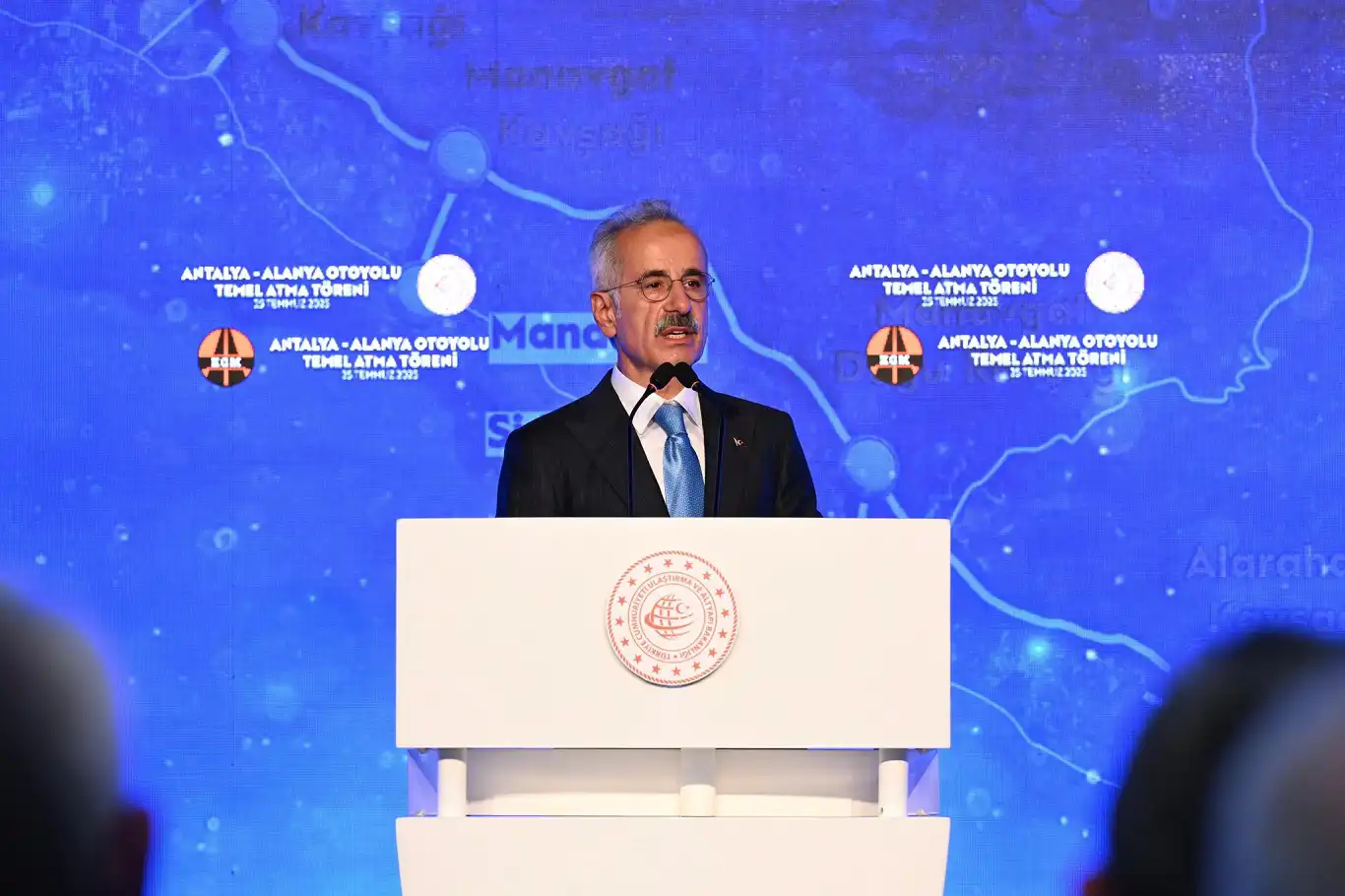Antalya–Alanya highway set to transform regional connectivity


Türkiye has officially launched construction of the long-anticipated Antalya–Alanya highway, a landmark infrastructure project expected to significantly enhance tourism, regional trade, and transportation efficiency along the Mediterranean coast.
In a press conference held Friday, Minister of Transport and Infrastructure Abdulkadir Uraloğlu announced the commencement of work on the 122-kilometer highway, describing it as a transformative investment for the region and the nation at large.
“This project will not only reduce travel time and traffic congestion, but also serve as a powerful engine for tourism, agriculture, logistics, and overall economic development,” Uraloğlu stated.
Once completed, the highway will cut travel time between Antalya and Alanya from 2.5 hours to just 36 minutes, dramatically improving access to two of Türkiye’s top tourism hubs. The route includes 84 kilometers of main roadway and 38 kilometers of access roads, winding through the foothills of the Taurus Mountains.
The new highway infrastructure will include a total of seven interchanges, designed to ensure smooth and efficient traffic flow. It will also feature five tunnels with a combined length of 4,365 meters, allowing the route to pass through the mountainous terrain with minimal disruption. In addition, 16 viaducts spanning 5,966 meters will be constructed to bridge valleys and uneven landscapes. To support long-distance travel and ensure driver comfort, the project will incorporate four motorway service areas along the route.
According to Ministry estimates, the project will generate an annual economic benefit of 16.9 billion Turkish Lira, including fuel savings of 800 million Lira and an annual reduction of approximately 47,000 tonnes of carbon emissions. The total economic impact is projected to reach 17.7 billion Lira.
Beyond tourism, the highway is expected to provide a critical boost to agricultural transport and logistics, improving access to key production centers for fruits and vegetables as well as export ports along the Mediterranean coast.
Uraloğlu noted that the highway is a central component of a broader national infrastructure strategy, with future extensions planned to connect it with other major routes such as the Denizli–Burdur and Burdur–Antalya motorways, ultimately creating a seamless corridor from the Mediterranean to İzmir, Istanbul, and Türkiye’s European borders.
“We are building not just a road, but a network that integrates tourism with trade and industry, connecting Antalya and Alanya to the rest of Türkiye and beyond,” the Minister added.
The project is expected to elevate Antalya and Alanya’s global appeal as top-tier tourist destinations by reducing congestion, particularly during the busy summer season when traffic volume peaks.
Local leaders and industry stakeholders have praised the move, calling it a much-needed development for the region’s infrastructure. Residents and businesses alike are hopeful that the highway will spur new employment opportunities, real estate growth, and investment in both cities and surrounding districts.
Construction is set to continue in stages, with authorities aiming for a timely and efficient rollout of each phase. Environmental impact assessments and safety protocols will remain in place throughout the development process.
With the Antalya–Alanya highway now officially underway, Türkiye moves another step closer to achieving its goal of modern, integrated, and sustainable transportation infrastructure nationwide. (ILKHA)
LEGAL WARNING: All rights of the published news, photos and videos are reserved by İlke Haber Ajansı Basın Yayın San. Trade A.Ş. Under no circumstances can all or part of the news, photos and videos be used without a written contract or subscription.
International credit rating agency Moody’s upgraded Türkiye’s sovereign credit rating from B1 to Ba3 on Friday, while shifting the country’s outlook from “positive” to “stable.”
The Turkish Central Bank’s Monetary Policy Committee announced on Thursday a reduction in the one-week repo auction rate from 46% to 43%, signaling a cautious easing of its tight monetary stance.
The Turkish Statistical Institute (TurkStat) announced on Wednesday that the consumer confidence index, a key indicator of public sentiment toward the economy, declined by 1.8% in July to 83.5, down from 85.1 in June.